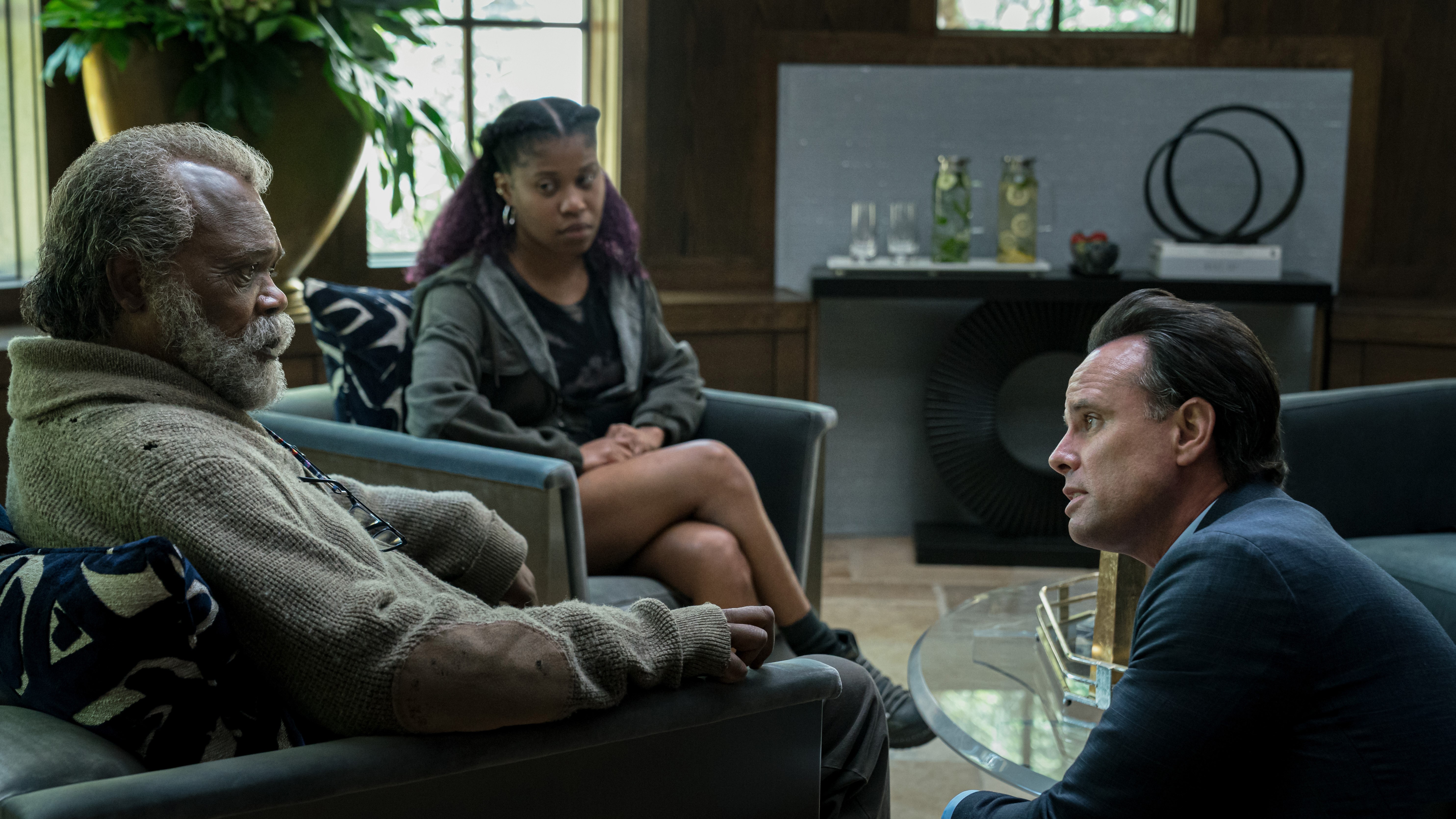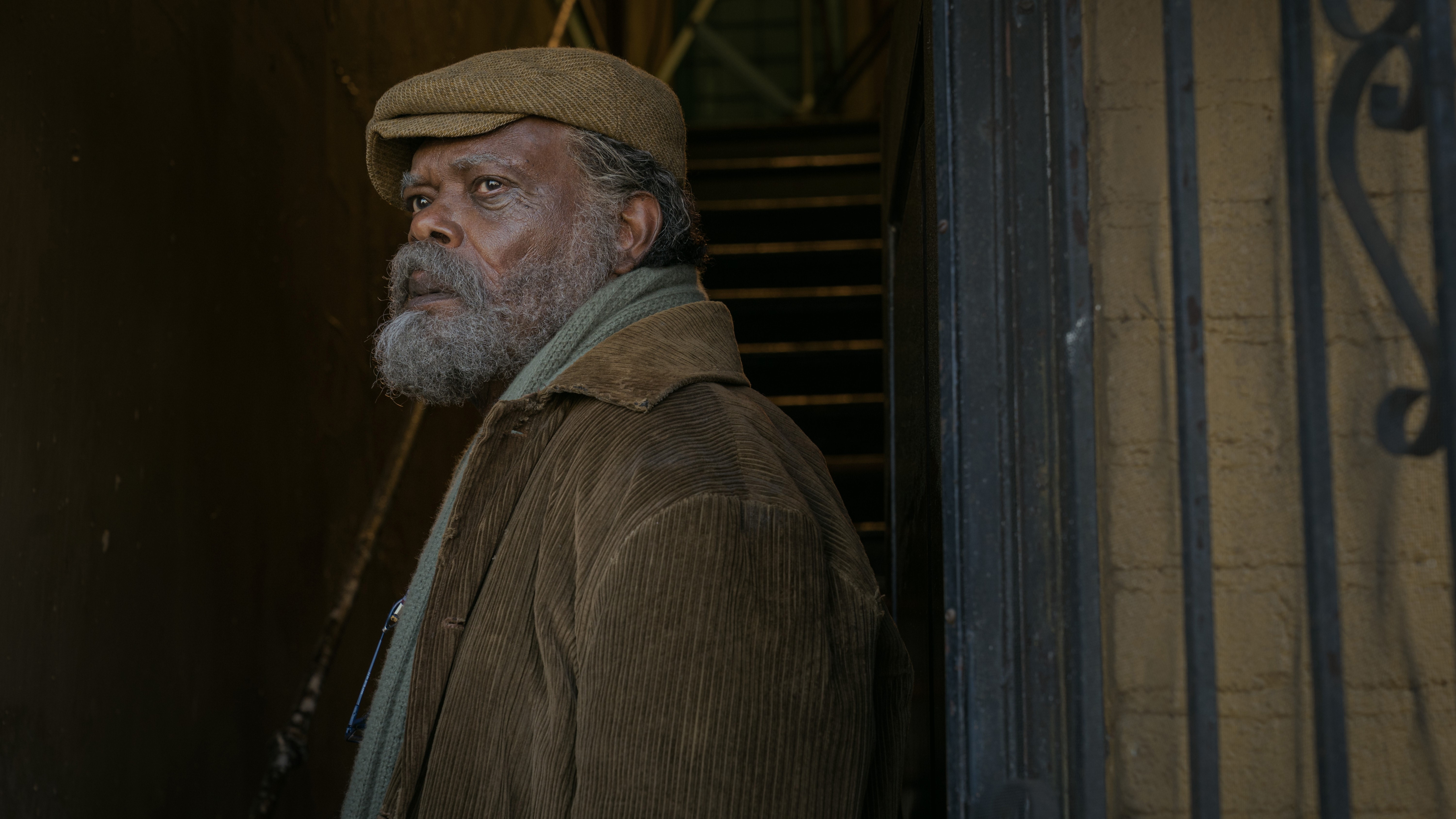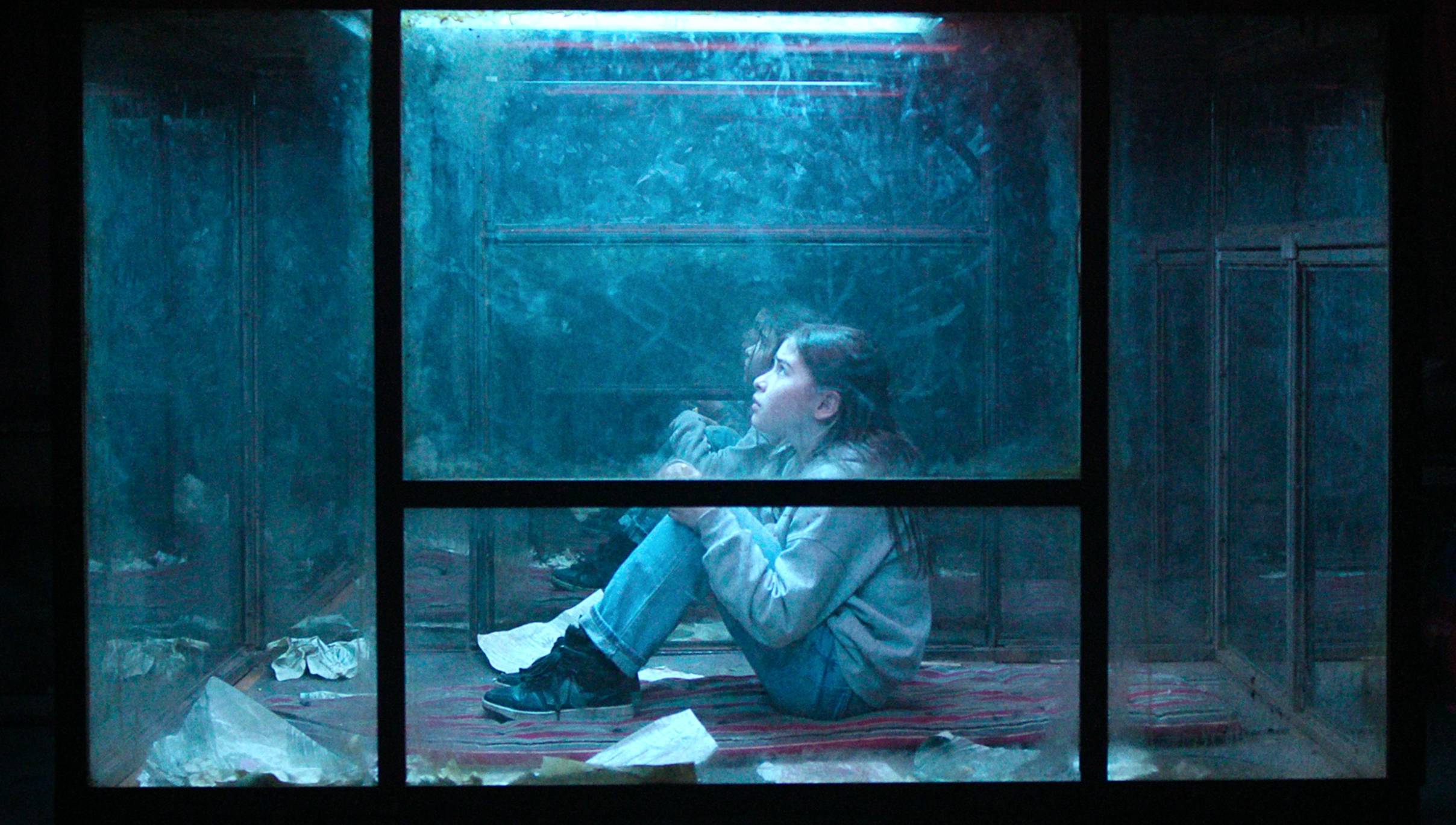What to Watch Verdict
The Last Days of Ptolemy Grey is a poignant, slow-building drama that raises the bar for centering Black characters and weaving truth and fiction into great television.
Pros
- +
Samuel Jackson’s Ptolemy Grey is a career best
- +
Dominique Fishback and Samuel Jackson’s chemistry carry the day
- +
Vibrant visuals and costuming
Cons
- -
Some of the side characters feel a bit underutilized
- -
Slightly uneven pacing
Note: This review contains some spoilers for The Last Days of Ptolemy Grey.
What would you do if your mind began failing before your body? What would you give to recover your vitality and a lifetime of memories even for a short time? Crime novelist Walter Mosley’s (Devil in the Blue Dress) buried these questions at the heart of The Last Days of Ptolemy Grey.
It’s a story about a man who chooses to trade his future for a temporary dementia cure so he can solve the murder of his great-nephew Reggie (Omar Benson Miller), protect the young woman who steps in as his caretaker (Dominique Fishback) and fulfill a promise to his long-deceased brother. Then fade away, on his own terms, leaving no unsettled business behind.
The new Apple TV Plus six-episode limited series — and Samuel L. Jackson’s longtime passion project — brings this storyline to vivid life through time jumps, semi-lucid dreams and an unconventional father-daughter dynamic as Ptolemy recovers his memories and settles his affairs.
This adaptation keeps Mosley’s plot largely intact, but its minor revisions to Mosley’s timeline add urgency and breathe life into The Last Days of Ptolemy in ways that let its characters’ personalities shine.
Historical fiction with Black people tends to zero and linger over moments of trauma and forget to let its characters live. Rather than merely marking time and trauma, as Ptolemy recovers his memories in vibrant detail the series shifts through the decades of his long life in a way that translates into a compelling memoriam.
But his remembrances do way more than simply mark time or wallow in pain. There’s a purpose to each moment, good or bad, he recalls. Ptolemy Grey is a man who’s often fallen short of his own expectations for himself and there’s no escaping that. As his mind clears, this clarity permits him to process the state of his family and the world around him.
Jackson’s portrayal of Ptolemy as a man who pauses his slide into oblivion relies not on his hallmark bombastic delivery. Rather, his Ptolemy embodies both the dry wit and whimsy of a once keenly intelligent man and the visibly unsettling uncertainty and depressive exhaustion sometimes noticeable in older people struggling to hold on to their facilities.
A reinvigorated Ptolemy understands that his vitality will be short-lived. But even as he pushes to uncover what happened to his great-nephew, it's his deepening relationship with his young caretaker, Robyn, that takes center stage and carries the day.
Dominique Fishback (Judas and the Black Messiah) is a wonder as a 17-year-old Robyn struggling to find her way. With a tragic backstory of her own, Robyn struggles to find a place to belong. Unlike the Robyn in the book, Fishback brings an emotive edginess to the role that makes for a more dynamic character and a captivating portrayal of brittle vulnerability and youthful perseverance. Jackson couldn’t get a better scene partner. Especially when it comes to setting the stage visually. She conveys deep feelings with a glance of a shoulder into a room or bouncing glee at receiving the gift of a bed to sleep in.

With the experimental treatment from a white research scientist (Walton Goggins) Ptolemy takes, this series offers a sharply drawn, if mostly silent, indictment of how Black bodies are sought as sacrifices to the "greater" scientific good. Goggins brings an awkwardly earnest, if detached, energy to his dynamic with Jackson that ensures a topic fraught with pitfalls gets treated with the respect and wariness it deserves.
Fishback’s experience stands as the silent witness to both the desperation or despair that prompts people to agree to being test subjects and the way those running the trial seem callously removed from their pain. But by making it clear that Ptolemy not only understands the risks and assumes them willingly, his decision is an empowered one. Ptolemy chooses to burn bright even though he knows it’s not possible to burn for long.
A persistent thread throughout Mosley’s books is the not-so-benign neglect of Black elders by family and the community. Last Days starts with a deeply befuddled Ptolemy who lives in squalor and tracks time between visits by his great-nephew in cans of beans eaten. The series inserts a scene between Ptolemy and Reggie as its opening sequence that makes both his isolation and neglect by his kin markedly clear from the outset.
The remainder of the worldbuilding draws on minor but pivotal moments — like Ptolemy being attacked by an addict in the street trying to rob him, again — to juxtapose his relationship with his family prior to the murder with the drastic change Robyn brings to his life after stepping in to care for him.
It’s easy to write these small touches off as background noise, but each offers a mirror to judge the actions of both Ptolemy and the series' secondary characters against at each milestone on his journey. As he gains lucidity and it becomes clear that his prior hermetic state isn’t due to his family’s inability to intervene, his decision to stand in the breach for both his relatives despite their disregard is almost stunning. There’s the sacrifice you make because it’s the right thing to do and then there are the ones you make because you love the people you’re making it for.
There’s a subtlety to this adaptation of The Last Days of Ptolemy Grey, which makes space for a tangled narrative that digs into many-layered “what-ifs” and turns them into a richly drawn story about grief, sacrifice, love and acceptance. This is one crime tale less about the "whodunit" and more about what are you willing to do once you know. Ptolemy Grey is a man on a collision course with a fate he’s intent on walking into eyes wide open.
The first two episodes The Last Days of Ptolemy Grey are now available to stream exclusively on Apple TV Plus.
Ro is a Rotten Tomatoes approved film/tv critic, writer and host on several of the MTR Network's podcasts. She's a member of the San Diego Film Critics Society and the Online Association of Female Film Critics. She's a former culture columnist for San Diego CityBeat (may it rest in peace) with a serious addiction to genre fiction, horror and documentaries. You can find her sharing movie and book recs and random thoughts, on her podcast I Talk Sh!t and Read or in her newsletter, Shelf Envy.












